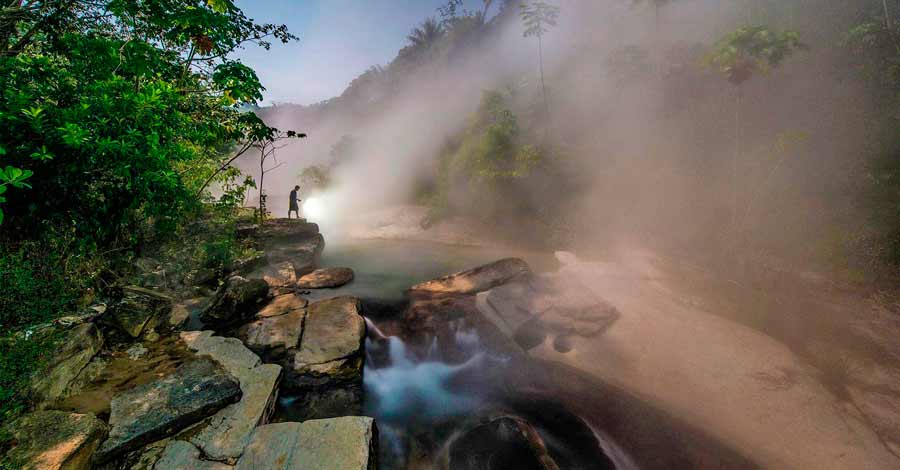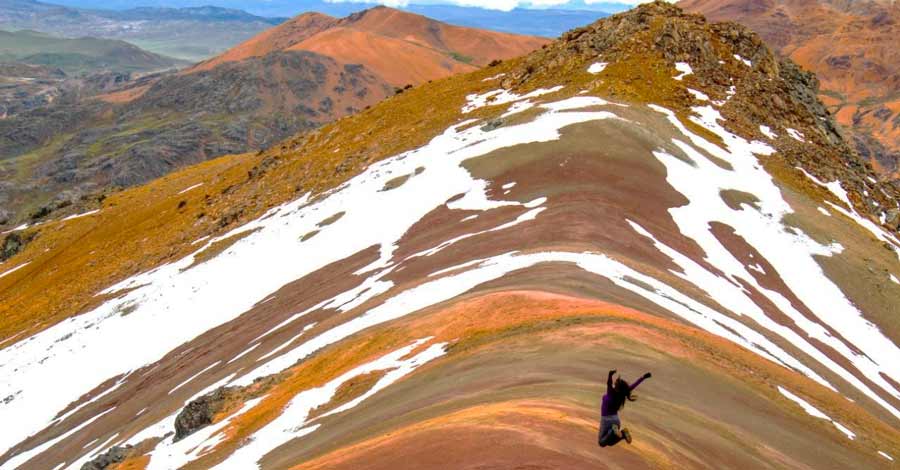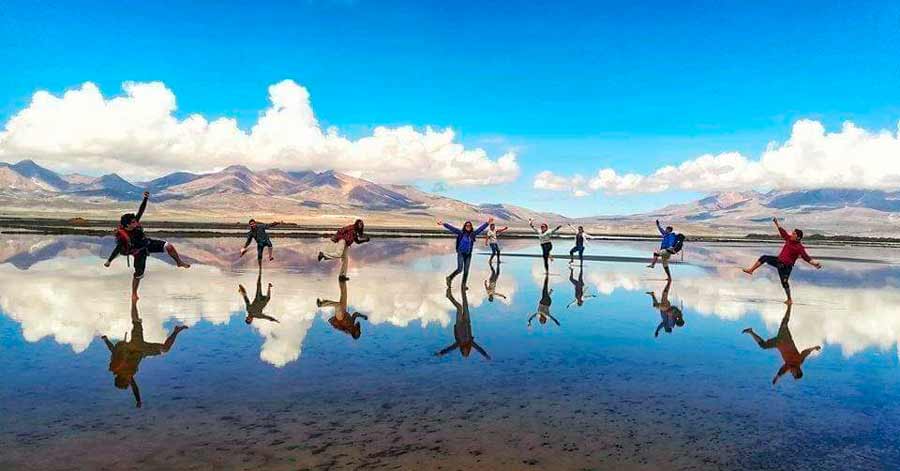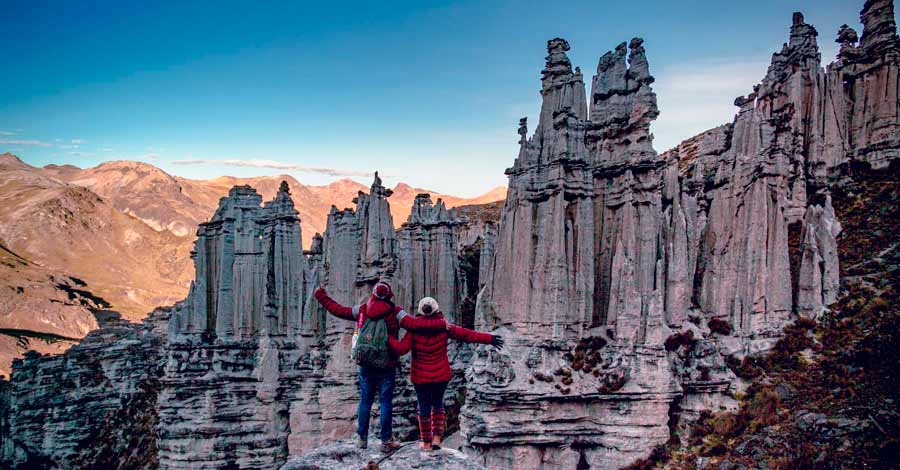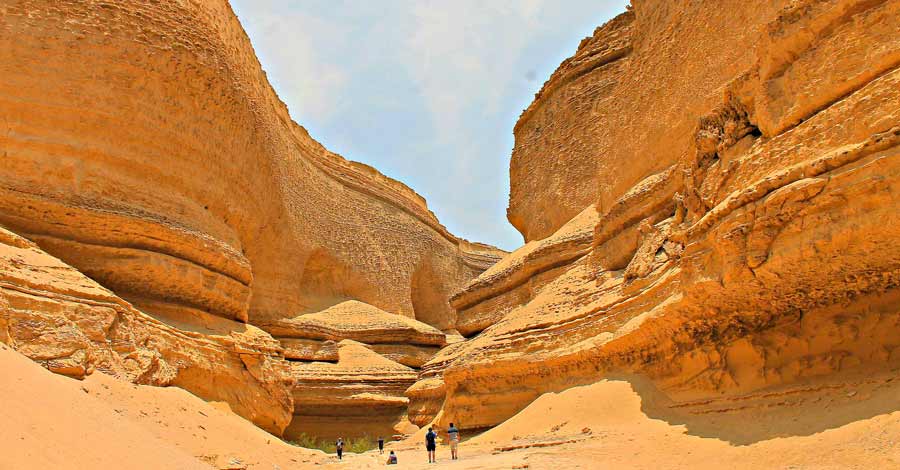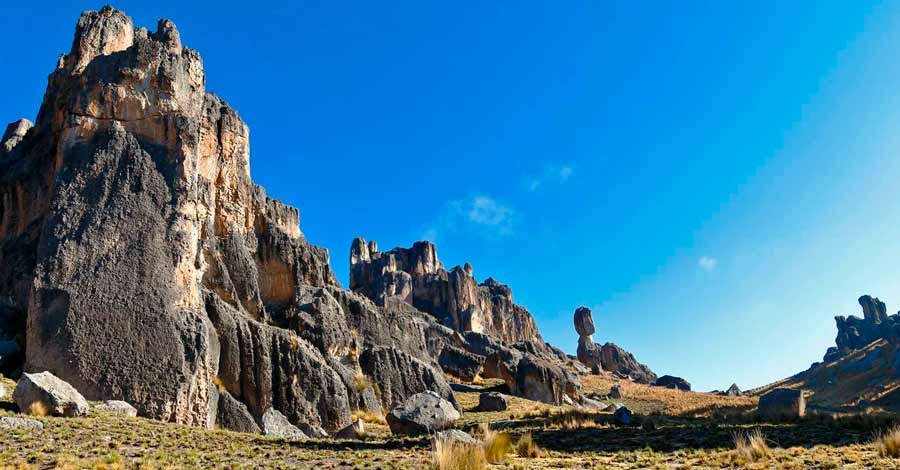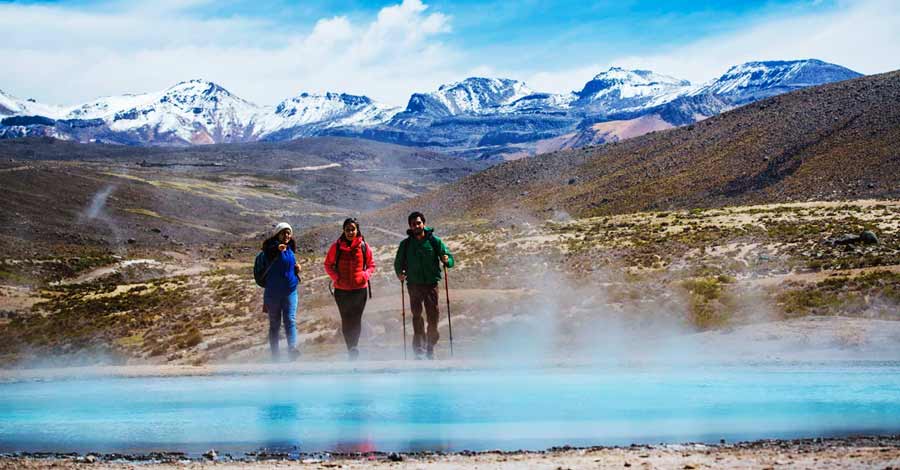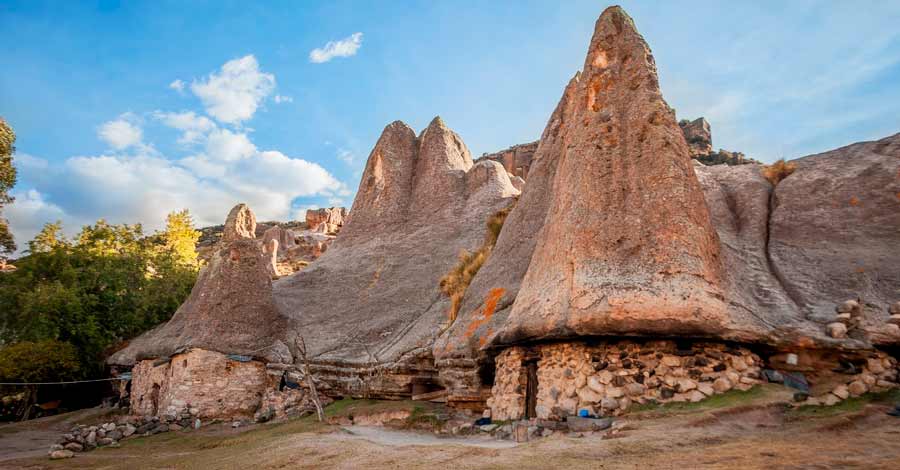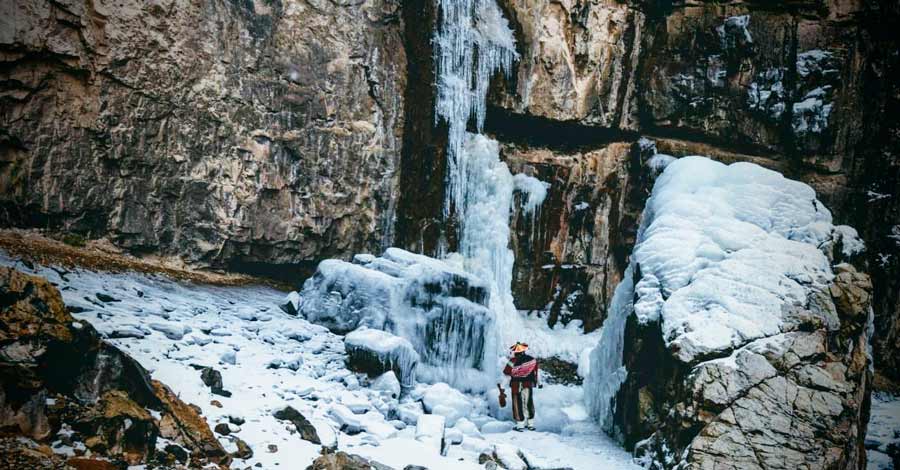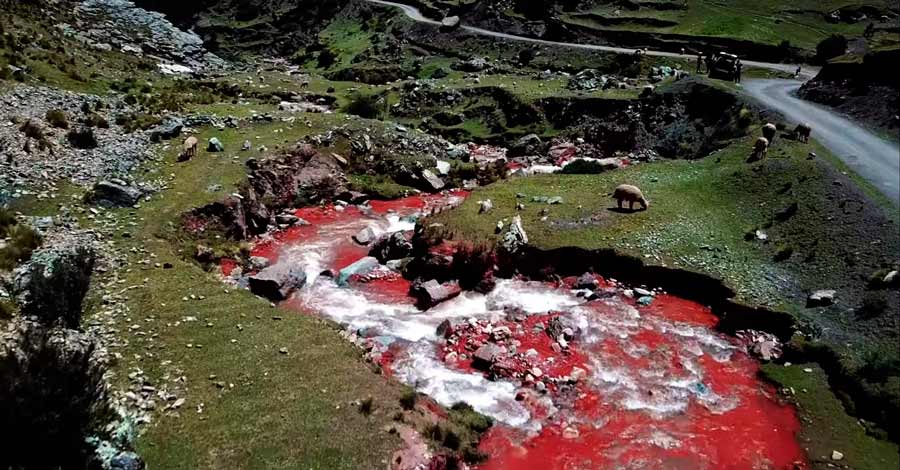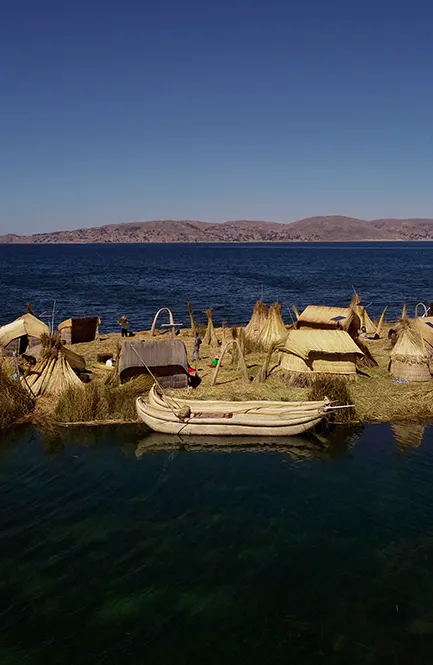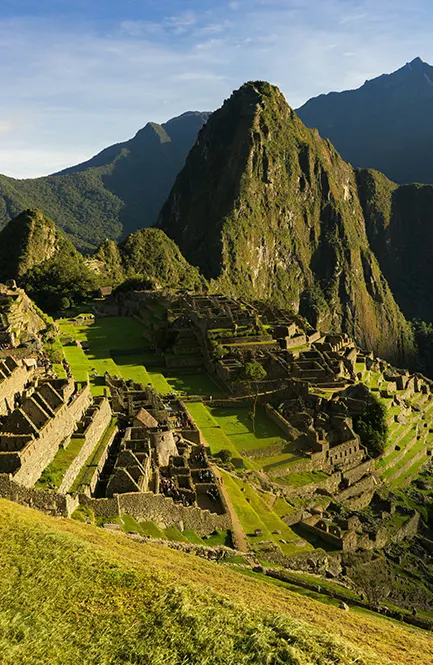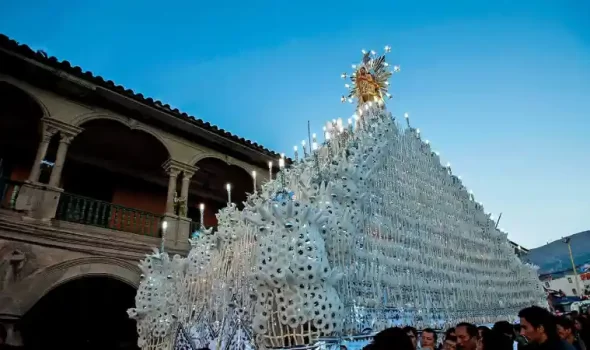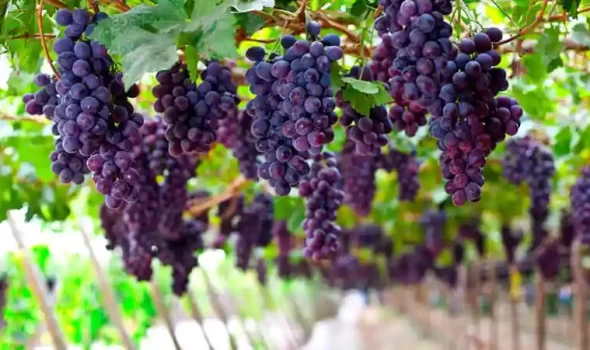There are unique and unknown places on the planet that with just one photograph quickly awaken our curiosity and even leave us amazed. Peru is one of those countries that has it all, enough to surprise friends and strangers alike; it is a megadiverse country, full of millenary richness, both cultural and natural, without forgetting the warmth of its people. However, Peru is not only Machu Picchu, the Nazca Lines, the Amazon, or its beautiful beaches.
Discover with Auri Peru Tours, some of the most amazing unknown places in Peru, fascinating sites that do not usually appear in tourist guides or integrated into the most demanded tour packages. Let’s see 10 of these unknown places you never knew existed in Peru that we hope will awaken your curiosity and increase your fascination and love for this legendary Inca country.
The boiling river of Mayantuyacu
Within the extensive and dense vegetation of the Peruvian Amazon, we find a phenomenon of nature that leaves any explorer perplexed, a unique place on a global scale. It is a river with its waters in the process of boiling, that’s right, a boiling river.
The Mayantuyacu or Shanay Tinpishka river, which translated means “Boiled with the heat of the sun” in the local language, is a river in the Amazon jungle whose waters reach a temperature of over 90°C. It is located in the district of Honoria, region of Huanuco in the central jungle of Peru.
It is a spectacular phenomenon, but at the same time deadly. Its waters remain hot for a stretch of 6.4 kilometers. Basically, the water could come from the glaciers of the Andes which, after seeping deep into the earth, gushes out as boiling water, it is a unique geological phenomenon in the world.
Yuracochas Rainbow Mountain
It is a mountain of colors with very similar characteristics to the Rainbow Mountain of Vinicunca in Cusco. But it is located in the central mountain range three hours from Ticlio, in the province of Huarochirí in the region of Lima.
This colorful mountain is located over 4800 m.a.s.l. When accessing this place, you not only enjoy the colorful shades of the mountain but also the impressive view of the mountain range of Yuracochas, the Nevado Rajuntay, or the beautiful Yuracocha Lagoon.
The Salinas Lagoon, the Peruvian Uyuni
Known locally as the “Arequipa’s Uyuni”, it is a shallow water salt flat. It is located 3 hours from the city of Arequipa on the border of the national reserve of Salinas and Aguada Blanca at an altitude of 4300 meters above sea level. The lagoon is made up of several layers of salt that vary in thickness from centimeters to meters. The crust of the soil is very thick; the amount of salt in the lagoon is estimated in tons.
During the rainy season the salt lagoon is filled with shallow water, a phenomenon that allows to recreate unique photographs with visual effects very similar to those of the Uyuni salt flat reflecting the mountains and volcanoes that are around it. For example, the Ubinas volcano and the Pichu Pichu volcano. This lagoon is inhabited by a variety of Andean wildlife, including Andean flamingos.
The Gotham City of Pacunasa
Pacunasa is located in the district of Macusani in the province of Carabaya in the region of Puno. It is a peculiarly beautiful forest of stones, its geological formations have different sizes and shapes that resemble the shapes of towers or buildings of a city of Gothic architecture, which is why it has received the name of the city of the iconic Batman, “Gotham City”.
This tourist attraction is formed by rocks of volcanic origin that have been sculpted by rain, hail, wind, and ice over tens of thousands of years. These phenomena have given shape to all kinds of figures that our imagination allows us: human figures, animals or towers and buildings that make it very peculiar and from which comes its name.
Canyon of the lost ones
This is a large fissure in the gigantic desert of Ica, a deep cleft with almost vertical walls that has been sculpted by water and wind over millions of years. The canyon of the lost ones covers almost 2 kilometers of extension, it is located in the southwest of the district of Santiago, in the province and region of Ica. It owes its name to the fact that many explorers got lost while searching for it.
This remote place is a geological formation surrounded by clay pyramids, lakes and deserts in the middle of one of the largest deposits of marine fossils in Peru. According to paleontological studies, this would be a 20 to 30 million-year-old formation. Researchers also give indications that it was an aquiferous reservoir because of the fossil remains found. The canyon has 3 levels and depths between 200 and 300 meters.
Huayllay Stone Forest
Huayllay is one of the largest geological formations in the world and is considered one of the natural wonders of Peru. The scenic beauty of the landscape is characterized by an immense variety of rock formations within an area of 6 thousand hectares over an extensive paramo.
This National Sanctuary is located in the district of Huayllay, province and region of Pasco, at an altitude ranging from 4,100 to 4,546 m.a.s.l. It is said that this landscape of about 4,000 lithic figures was formed about seventy million years ago. All this area was part of the seabed during the Paleozoic period; a volcanic explosion caused the rocks to fall into the sea of lava and cool in a whimsical way, giving shape to the most capricious figures.
The great variety of rock formations ranges from 10 to 100 meters. The hundreds of rock formations recreate any being or object that our imagination dares to shape. Among the most famous are the guardian, the crocodile, the bear, the cobra, the snail and the turtle.
Candarave Geysers
In the middle of a natural landscape full of beautiful Andean scenery, we will find a set of geysers with high temperatures that exceed 86°C. They attract a lot of attention because they stand out for the great evaporation and the large columns of steam that delight the eye from a great distance.
These 85 hot springs are located about 4 hours from the city of Tacna, within the Vilacota-Maure Regional Conservation Area. Due to their high sulfur concentration, some are used as thermal baths. These waters have relaxing and healing properties that help treat bone diseases and other ailments.
Pampachiri or the Smurfs Village
This iconic place is located in the province of Andahuaylas, in the region of Apurimac. Here we are delighted with a stone forest of fascinating conical figures. These rock formations, inhabited by families from the community of Pampachiri, give the impression of being the houses of the popular Smurfs, which is why it is popularly known as “Smurfs Village“. Although in reality, its ancestral name is Ayamachay, which means “Caves of the Dead”.
The origin of the rocky landscape of Pampachiri is attributed to the eruption of the Qarwarasu and Sotaya volcanoes approximately four million years ago. And yes, Peru has several stone forests in its territory due to its location in a highly volcanic area. The expelled matter formed the geological zone, later the rains and the wind were in charge of artistically molding the stones in the form of cones. Some with very pronounced points, others like mushrooms up to 10 meters high.
This place is surrounded by large eucalyptus forests crossed by a river of transparent waters; characteristics that make it a village out of a fairy tale (like Smurfs Village). Since 2016 this place has been becoming known and today it is very popular among national tourists.
The frozen waterfalls of Panahua
The peculiarity of these waterfalls is that we can find them totally frozen! That’s right, we can find these waterfalls in a solid state as if it were a magic or science fiction movie because they are large blocks of ice emerging from between the rocks.
The frozen waterfalls of Panahua are located at 4367 meters above sea level, in the district of Orcopampa, in the annex of Panahua in the region of Arequipa, they are waterfalls with falls of approximately 50 meters. The waterfalls are called Paychi Paccha Waterfall, Chillhuani Waterfall, Pukara Waterfall, and Hatun Paqcha Waterfall. The particularity of these waterfalls is that, as we have already mentioned, during the coldest months of the year, between June and October whose temperatures fall below zero, the first three are frozen.
Among the activities that can be done at the falls are photography (who wouldn’t want to take a picture with a frozen waterfall?), trekking and bird watching. The road that leads to these waterfalls allows you to explore interesting trails, caves and ritual scenarios to Andean deities.
The incredible Red River
This river is located very close to one of the most spectacular natural phenomena in the Peruvian Andes, the Rainbow Mountain. The Red River of Peru is located in the province of Canchis, within the district of Pitumarca in Cusco. Its waters descend from the popular place known as “Red Valley” about 20 minutes from Rainbow Mountain.
The peculiarity of this phenomenon is due to the minerals that fall into the riverbed when the area has enough rainfall, which leads to the landslide of the mountain and other nearby mountains making this natural phenomenon a spectacle. We can even witness rivers of very intense tonalities throughout this area. It should be noted that this phenomenon only occurs during the rainy season in the region of Cusco, the months of November to April, months in which we are delighted with a river dyed a deep red.
As we have just seen, Peru has many amazing places to discover. Enigmatic and surprising places that you can find in this country just by deciding and asking us about them at Auri Peru Travel. Come and see the strangest and most beautiful natural spectacles of Peru! Auri Peru Travel is happy to help with your travel plans to Machu Picchu and other places around the country. Come and enjoy your Peruvian Adventure with us!




